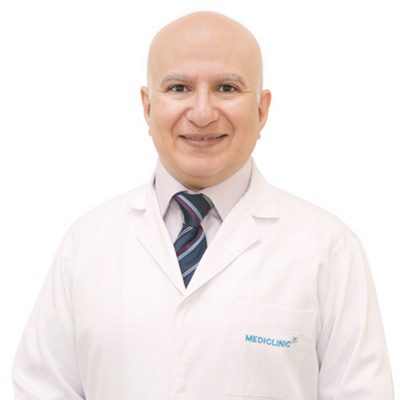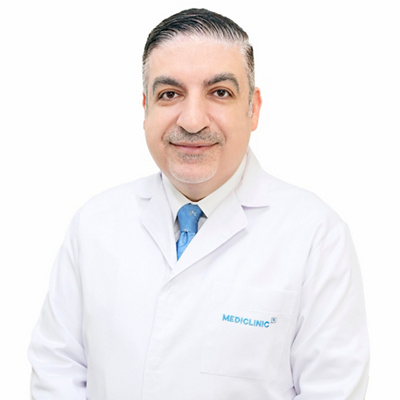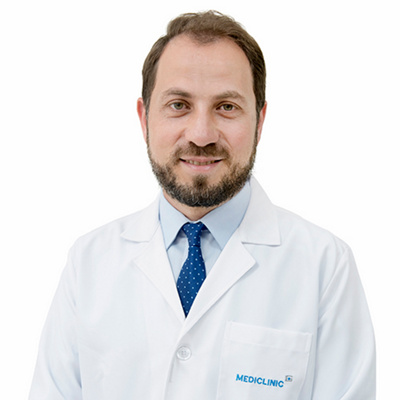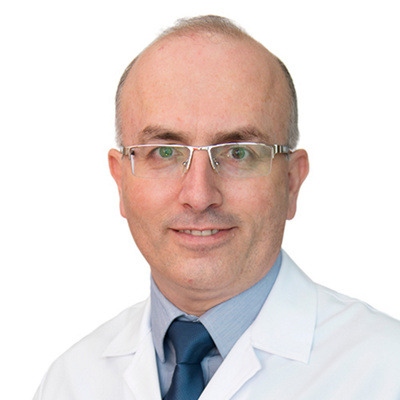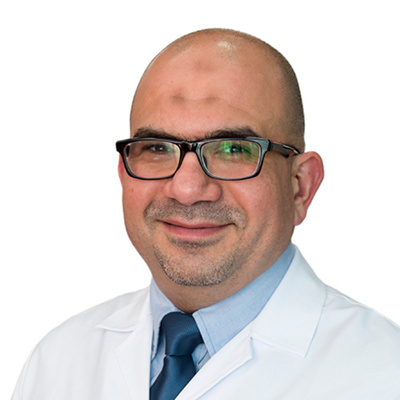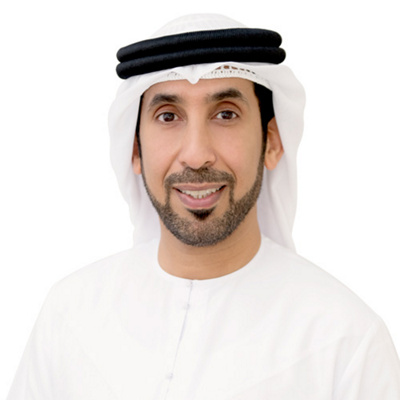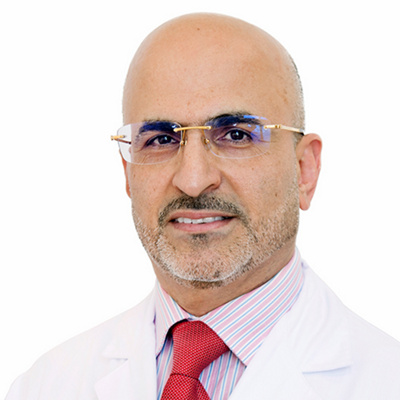Welcome to the Orthopaedic Department at Mediclinic Airport Road Hospital Abu Dhabi, a specialised field dedicated to diagnosing, treating, and preventing musculoskeletal disorders and injuries. At the heart of orthopaedic care lies a commitment to restoring mobility, alleviating pain, and improving the quality of life for individuals of all ages.
Orthopaedics focuses on a wide array of conditions related to the musculoskeletal system, encompassing bones, joints, ligaments, tendons, muscles, and nerves. Whether it's a sports injury, a degenerative condition like arthritis, fractures, spinal issues, or congenital disorders, our orthopaedic specialists are equipped with the expertise to address diverse concerns.
Orthopaedic care isn't just about treating the symptoms; it's about understanding the unique needs of each patient. From initial assessment and accurate diagnosis to personalised treatment plans and rehabilitation, our orthopaedic specialists at the orthopaedic department at Mediclinic Airport Road Hospital Abu Dhabi take a comprehensive approach to ensure the best possible outcomes.
Accurate diagnosis is fundamental to effective treatment, hence our orthopaedic experts utilise cutting-edge imaging technologies like X-rays, MRIs, and CT scans to precisely diagnose conditions. This detailed insight enables them to tailor treatment plans to suit individual needs.
Conditions treated by the Orthopaedic Department include:
Surgical and non-surgical management of sport injuries
Non-Surgical Management: This involves initial treatments such as rest, ice, compression, and elevation (RICE), physical therapy, anti-inflammatory medications, and activity modification. Rehabilitation programs are designed to restore function and strength gradually. Non-surgical methods aim to heal the injury without invasive procedures.
Surgical Management: When non-surgical treatments don't yield the desired outcome, or in cases of severe injuries (like torn ligaments or severely damaged tendons), surgery might be necessary. Surgical intervention aims to repair or reconstruct damaged tissues, often involving procedures like arthroscopy, ligament repair, or tendon reconstruction.
Surgical and non-surgical management of arthritis
Non-Surgical Management: This typically includes lifestyle modifications, physical therapy, pain management with medications or injections, assistive devices (like braces), and weight management. Exercise programmes are often recommended to improve joint function and reduce stiffness.
Surgical Management: When conservative measures fail to provide relief and there's significant joint damage causing pain and limited mobility, surgery might be considered. Procedures such as joint replacement (like hip or knee replacement), arthroscopy, or joint fusion can be performed to alleviate pain and improve joint function.
Surgical and non-surgical management of fractures
Non-Surgical Management: Fractures are initially managed by immobilisation using splints, casts, or braces to ensure proper alignment and healing. Pain management, physical therapy, and monitoring for complications like infection or nerve damage are also key aspects of non-surgical management.
Surgical Management: In cases where the fracture cannot be adequately stabilised or aligned through non-surgical means, surgery may be necessary. Surgical procedures involve realignment (reduction) of the bones, fixation with plates, screws, rods, or pins to maintain proper alignment during healing. This helps in promoting faster and more accurate healing of the fractured bone.
Both surgical and non-surgical approaches aim to restore function, alleviate pain, and promote healing, with the choice depending on the severity of the injury or condition and the patient's individual circumstances.
Specific areas of expertise include:
Shoulder surgery for arthritis, sport injuries
This procedure involves addressing issues in the shoulder joint resulting from arthritis or sports-related injuries. Surgeons might perform repairs on damaged tendons, ligaments, or cartilage, and in severe cases, they may opt for shoulder replacement to alleviate pain and restore function.
Hip replacement surgery
Typically recommended for individuals with severe hip arthritis or irreparable damage due to injury, hip replacement surgery involves removing the damaged hip joint and replacing it with an artificial joint (prosthesis). This procedure aims to reduce pain, restore mobility, and improve overall hip function.
Knee surgery for sport injuries (including ligament reconstructions) and arthritis (knee replacements)
Knee surgeries for sports injuries often involve repairing torn ligaments (such as ACL or PCL) through reconstruction techniques. Additionally, for severe arthritis, knee replacement surgeries are performed, wherein the damaged knee joint is replaced with an artificial joint, usually made of metal and plastic components, to enhance mobility and reduce pain.
Foot and ankle surgery (sport injuries, children and adult deformities, neuromuscular, arthritis, trauma)
This encompasses a broad range of procedures addressing various conditions, such as sports injuries, deformities (both in children and adults), neuromuscular issues affecting foot and ankle function, arthritis management, and trauma repair. Surgeons might conduct realignment surgeries, tendon repairs, or joint fusions, among other techniques, to restore function and alleviate pain.
Hand surgery
Hand surgery involves treating a spectrum of conditions affecting the hand, wrist, and forearm. This may include repairing fractures, treating conditions such as carpal tunnel syndrome or trigger finger, reconstructive surgery for deformities, tendon repairs, nerve repairs, and addressing arthritis-related issues to restore optimal hand function.
Revision joint replacement
This surgery is performed when a previous joint replacement has complications, such as loosening, instability or infection. It involves correcting issues related to the initial joint replacement, which could entail replacing or repairing parts of the prosthetic joint to restore function and alleviate pain.
These surgeries aim to alleviate pain, improve joint function, and enhance the quality of life for individuals suffering from joint-related issues due to various causes, including injuries and degenerative conditions like arthritis. The specific procedure chosen depends on the individual's condition, severity of the issue, and the recommendations of the healthcare provider.
Walk-in patients can be accommodated, and the department accepts referrals for trauma patients and from the Emergency Department. All plastering, casting and minor suturing can be done within the department, with more serious cases transferred to the operating theatre.
Whether it's getting back on the field, walking pain-free, or simply enjoying daily activities without discomfort, our orthopaedic experts in the orthopaedic department in Mediclinic Airport Road Hospital Abu Dhabi remain dedicated to making these aspirations a reality. Contact us today to learn more out our services.





